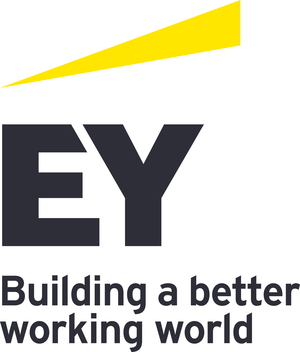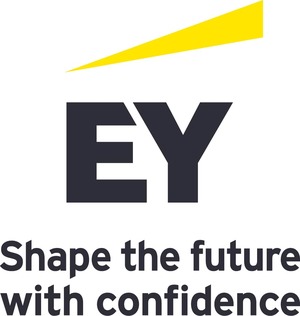NEW YORK, Jan. 12, 2015 /PRNewswire/ -- Keeping pace with the changing risk management landscape is nothing new for corporate boards, but as we head into 2015, leaders are facing a variety of challenges that if not properly overseen may impact their organization's reputation. To help boards and investors be aware of and prepare for these challenges, the EY Center for Board Matters, which celebrates its one-year anniversary in January, today unveiled its Top Corporate Board Priorities for the new year.
"Last year was about shareholder activism and engagement," said Mark Manoff, EY Americas Vice Chair and leader of the EY Center for Board Matters. "Boards that spent time in 2014 engaging with long-term investors to learn about their corporate governance concerns and priorities are likely to be better strategically positioned moving forward as activist campaigns continue at the same heightened pace."
According to the EY Center for Board Matters, the Top Corporate Board Priorities in 2015 include:
- Board composition and turnover. Through conversations with about 50 institutional investors in 2014, EY Center for Board Matters learned that board composition and renewal is one of their key priorities going into the 2015 proxy season and that most of these investors do not believe that companies are doing a good job of explaining in the proxy statement why they have the right directors in the boardroom. Attention to succession planning can help ensure the board includes directors with a balanced level of institutional knowledge and fresh perspectives and may help defend against activist investors that attempt to exploit perceived weakness in board composition.
- Pressure from shareholders. This will put more pressure on boards to explain their current practices and adhere to the highest standards of corporate governance. These pressures may come through engagement, letters to the boards, submission of shareholder proposals, or proxy voting decisions. Interestingly, based on EY Center for Board Matters corporate governance data, about 40 percent of shareholder proposals submitted to date focus on environmental and social topics. There will also be a significant increase in shareholder proposals asking for implementation of proxy access procedures – already 80 have been submitted, up from 22 in 2014.
- Improving disclosures. Regulators and standard setters are increasingly focused on making business and financial disclosures more effective. According to dialogue with investors, the quality of disclosures around how boards are carrying out their oversight responsibilities – including strategy, risk, management and CEO succession, audit and compensation – will improve in 2015. "More companies will present information clearly and concisely in graphs, charts and tables. Emphasizing the most important information is expected to aid further in disclosure effectiveness. Long term we expect technology to play an important role in disclosure reform," said Ruby Sharma, a Principal at Ernst & Young LLP and with the EY Center for Board Matters.
- Regulatory cooperation. Although regulation is a constant challenge, every company – no matter the industry – must manage this risk. The new year will continue to see more cooperation between regulators in Western and developing markets. Already the PCAOB and its Chinese counterpart are beginning to make some progress with information sharing and creating an environment for consistent dialogue.
- Human Capital. We will continue to see emerging economies assume greater share of global spending power. Many countries are experiencing explosive population growth, major demographic shifts or population declines. These trends will continue to have far reaching impact, ranging from growing pressure on critical resources to sweeping changes in goals and aspirations at a personal and social level. Effective board oversight is required to address emerging risks in this volatile environment.
- Cybersecurity. Board members were increasingly held accountable, and in some cases ousted, for improperly managing cybersecurity risks in 2014 – risks that will continue to proliferate in 2015. Corporate boards must set the tone for enhancing cybersecurity and determine oversight responsibility all the while giving their organizations the appropriate flexibility to embrace the power of technology. They must also make sure their composition evolves to include leaders who deeply understand the business and IT risks associated with cybersecurity.
"With the rapid rise of transformational technologies, digital risks and human capital challenges, boards need to effectively manage reputational risk on a global scale. As a result, board members' time commitment might increase in 2015," said Sharma.
The EY Center for Board Matters was launched in early 2014 to inform and bring together boards, audit committees, institutional investors and others interested in governance topics through the collection and analysis of governance data from more than 3,000 public companies listed in the US through its proprietary database. In addition, its leaders regularly speak with investors and board members to bridge the information "give and take" that exists between preparers and users of corporate financial information.
For additional insights from the EY Center for Board Matters, please go to: ey.com/boardmatters
About The EY Center for Board Matters
Effective corporate governance is an important element in building a better working world. The EY Center for Board Matters is committed to bringing together and engaging with boards, audit committee members and investors to exchange ideas and insights. Using our professional competencies, relationships and proprietary corporate governance database, we are able to identify trends and emerging governance issues. This allows us to deliver timely and balanced insights, data-rich content and practical tools and analysis to boards, audit committees, institutional investors and others interested in governance topics.
About EY
EY is a global leader in assurance, tax, transaction and advisory services. The insights and quality services we deliver help build trust and confidence in the capital markets and in economies the world over. We develop outstanding leaders who team to deliver on our promises to all of our stakeholders. In so doing, we play a critical role in building a better working world for our people, for our clients and for our communities.
EY refers to the global organization, and may refer to one or more, of the member firms of Ernst & Young Global Limited, each of which is a separate legal entity. Ernst & Young Global Limited, a UK company limited by guarantee, does not provide services to clients. For more information about our organization, please visit ey.com.
This release has been issued by Ernst & Young LLP, an EY member firm serving clients in the US.
Logo - http://photos.prnewswire.com/prnh/20130701/NY40565LOGO-b
SOURCE EY
Related Links
WANT YOUR COMPANY'S NEWS FEATURED ON PRNEWSWIRE.COM?
Newsrooms &
Influencers
Digital Media
Outlets
Journalists
Opted In





Share this article